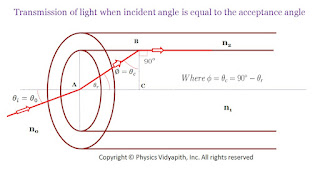Concept of Simultaneity in Special Relativity
Concept of Simultaneity (Relative character of Time ):
The interval aren't the same for two observes in relative motion. This cause an important incontrovertible fact that two events that appear to happen simultaneously to at least one observer are not simultaneous to another observer in relative motion.
Suppose two events occur (or two-time bombs explode) at different places $x_{1}$ and $x_{2}$ but at the same time $t_{0}$ with respect to an observer in a stationary frame (or on the ground). The situation of the different to an observer in moving frame $S'$ or to a pilot of a spaceship moving with velocity $v$ relative to stationary frame $S$ (or ground). To him, according to Lorentz transformation for time.
The explosion at $x_{1}$ occurs at
$t'_{1} = \frac{t_{0} -x_{1}\frac{v}{c^{2}}}{\sqrt{1-\frac{v^{2}}{c^{2}}}}$
$ x_{2}$ occurs at
$t'_{2} = \frac{t_{0}- x_{2}\frac{v}{c^{2}}}{\sqrt{1-\frac{v^{2}}{c^{2}}}}$
Hence the two events (explosions) that occur simultaneously to one observer in the stationary frame are separated to another observer in a moving frame by an interval of
$t'_{2}-t'_{1}=\frac{\left ( x_{1}-x_{2} \right )\frac{v}{c^{2}}}{\sqrt{1-\frac{v^{2}}{c^{2}}}}$
Therefore, the principle of simultaneity in relativity is an absolute concept for two events. It depends on an observer or a frame of reference. The effect is not due to the time dilation. Hence, we conclude that there is no such thing as “absolute time” which is the same for all observers.
“Time is relative and it varies for all observers in relative motion.”

